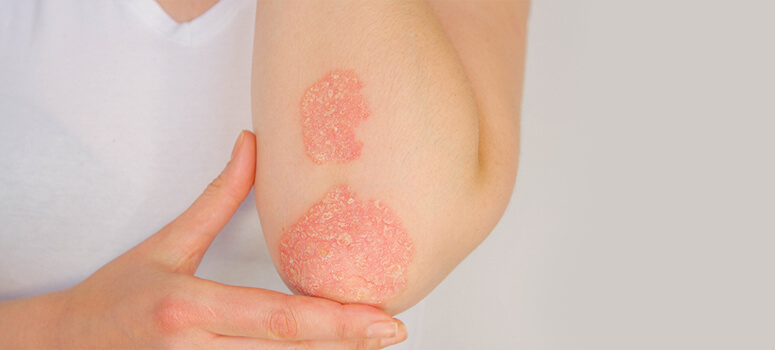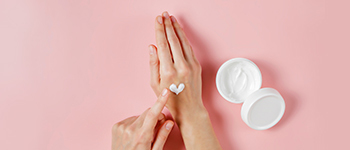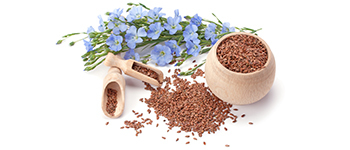Psoriasis is a chronic skin disease that causes red, itchy, and scaly patches to appear across the body. If you have psoriasis, your only plan of attack is to manage the symptoms. As psoriasis is a long-term disease with no cure and frequent flare-ups, lifestyle changes and tweaks can provide immense relief. Read on for our list of seven super simple habits that will get you significant results in your fight against psoriasis. If you’ve ever wondered how to get rid of psoriasis, this detailed list will help get you halfway there.
-
Get Enough Sunlight
UVA and UVB rays can have a positive impact on psoriasis. UVB light, in particular, can slow down the growth of skin cells that cause psoriasis, reducing scaling and inflammation. UVB also helps your body make more Vitamin D which supports better skin health. However, it is important that you time your sun exposure – Wear sunscreen and limit your exposure to sunlight to 20 minutes at a time.
-
Use Moisturizing Lotion
With psoriasis, symptoms get exponentially worse when your skin is dry. Therefore, cold, dry weather worsens symptoms more than hot weather for many people. Moisturisation of areas most commonly affected by psoriasis such as elbows, knees, back and scalp may provide relief through increased hydration. Moisturise your skin with thick and oily creams and lotions like petroleum jelly, best suited to trapping moisture beneath the skin.
-
Eat Flax Seed
Aside from lifestyle changes, the foods you eat can significantly impact psoriasis flare-ups. If you are looking for how to prevent psoriasis from spreading, diet changes should be your first answer. One such diet addition is flax seeds. Flaxseed is known to contain omega-3 fatty acids that help with fighting psoriasis. Omega 3 acids in flaxseed help fight inflammation and also support the body’s immune system. As psoriasis is considered an immune disease, a diet that combats the effects of psoriasis and reduces inflammation is particularly effective.
Experts recommend that people with psoriasis eat a balanced diet high in fruits and vegetables. Some studies also show that excess weight can lead to a flare-up. Therefore, maintaining a healthy weight with the combination of diet and exercise can help you manage psoriasis better.
-
Avoid Scratching and Itching
People with psoriasis need to be extra careful with their skin and avoid scratching and itching. If you pick at patches or scales, you might cause a flare-up. Similarly, avoid getting bumps and cuts, which can trigger “Koebner’s phenomenon” and cause a new patch of psoriasis to appear on the skin. For people who have psoriasis on the scalp, use tar shampoos and other soothing products while bathing. To avoid trauma to the skin or scratches, be careful during shaving, avoid insect bites, tattoos and chafing.
-
Quit Smoking and Alcohol
Alcohol is a trigger for many people with psoriasis, with men being particularly affected. If you want a solution to preventing psoriasis, quitting alcohol is an easy, preventive measure. If you find it hard to give up cold turkey, consider cutting back. Evidence has found that people who consume alcohol have a greater chance of developing psoriasis.
Additionally, experts say that drinking can set off psoriasis symptoms and reduce the amount of time you spend symptom-free. This is because alcohol affects brain chemicals called neurotransmitters, and some research suggests that chemical messengers could play a role in the inflammation process with psoriasis. Alcohol can also mix badly with psoriasis drugs.
Similarly, it has also been found that smoking increases psoriasis risk and negatively impacts the benefits of biologic agents. The association of smoking with affecting the onset of psoriasis is related to oxidative stress, interaction with signalling pathways active in psoriasis, and vascular influences.
-
Sleep Better
how to stop psoriasis from spreading, try relaxation techniques like yoga and meditation to manage stress. Sleep deprivation caused by stress or other reasons has also been found to trigger psoriasis or worsen it by affecting the epidermal barrier’s immune system.
-
Get Doctor’s Approval before Stopping Medication
It is essential for people who have psoriasis to consult a doctor before stopping, reducing or changing medication. As psoriasis is a lifelong disease, treatment must be monitored carefully. And while some treatments can be stopped immediately, others need to be phased out slowly to prevent a psoriasis rebound. If you decide to stop treatment abruptly, you can risk getting an even more serious type of psoriasis. For instance, a person who has plaque psoriasis may develop pustular psoriasis or erythrodermic psoriasis. Consult a dermatologist to stop treatment or find alternative options gradually.
-
You Have Help
If you’re dealing with psoriasis, remember that you’re not alone. Chronic disease management requires a lot of trial and error and deep commitment. While there are lifestyle remedies galore on the internet, it’s advisable to get expert assistance for more effective results. A professional can help monitor your flare-ups, suggest remedies specific to you, tips to prevent psoriasis and create a manageable treatment plan. Skin and Hair Academy can help you find the best dermatologists near you.


 UVA and UVB rays can have a positive impact on psoriasis. UVB light, in particular, can slow down the growth of skin cells that cause psoriasis, reducing scaling and inflammation. UVB also helps your body make more Vitamin D which supports better skin health. However, it is important that you time your sun exposure – Wear sunscreen and limit your exposure to sunlight to 20 minutes at a time.
UVA and UVB rays can have a positive impact on psoriasis. UVB light, in particular, can slow down the growth of skin cells that cause psoriasis, reducing scaling and inflammation. UVB also helps your body make more Vitamin D which supports better skin health. However, it is important that you time your sun exposure – Wear sunscreen and limit your exposure to sunlight to 20 minutes at a time. With psoriasis, symptoms get exponentially worse when your skin is dry. Therefore, cold, dry weather worsens symptoms more than hot weather for many people. Moisturisation of areas most commonly affected by psoriasis such as elbows, knees, back and scalp may provide relief through increased hydration. Moisturise your skin with thick and oily creams and lotions like petroleum jelly, best suited to trapping moisture beneath the skin.
With psoriasis, symptoms get exponentially worse when your skin is dry. Therefore, cold, dry weather worsens symptoms more than hot weather for many people. Moisturisation of areas most commonly affected by psoriasis such as elbows, knees, back and scalp may provide relief through increased hydration. Moisturise your skin with thick and oily creams and lotions like petroleum jelly, best suited to trapping moisture beneath the skin. Aside from lifestyle changes, the foods you eat can significantly impact psoriasis flare-ups. If you are looking for how to prevent psoriasis from spreading, diet changes should be your first answer. One such diet addition is flax seeds. Flaxseed is known to contain omega-3 fatty acids that help with
Aside from lifestyle changes, the foods you eat can significantly impact psoriasis flare-ups. If you are looking for how to prevent psoriasis from spreading, diet changes should be your first answer. One such diet addition is flax seeds. Flaxseed is known to contain omega-3 fatty acids that help with  People with psoriasis need to be extra careful with their skin and avoid scratching and itching. If you pick at patches or scales, you might cause a flare-up. Similarly, avoid getting bumps and cuts, which can trigger
People with psoriasis need to be extra careful with their skin and avoid scratching and itching. If you pick at patches or scales, you might cause a flare-up. Similarly, avoid getting bumps and cuts, which can trigger  Alcohol is a trigger for many people with psoriasis, with men being particularly affected. If you want a solution to preventing psoriasis, quitting alcohol is an easy, preventive measure. If you find it hard to give up cold turkey, consider cutting back. Evidence has found that people who consume alcohol have a greater chance of developing psoriasis.
Alcohol is a trigger for many people with psoriasis, with men being particularly affected. If you want a solution to preventing psoriasis, quitting alcohol is an easy, preventive measure. If you find it hard to give up cold turkey, consider cutting back. Evidence has found that people who consume alcohol have a greater chance of developing psoriasis. how to stop psoriasis from spreading, try relaxation techniques like yoga and meditation to manage stress. Sleep deprivation caused by stress or other reasons has also been found to trigger psoriasis or worsen it by affecting the epidermal barrier’s immune system.
how to stop psoriasis from spreading, try relaxation techniques like yoga and meditation to manage stress. Sleep deprivation caused by stress or other reasons has also been found to trigger psoriasis or worsen it by affecting the epidermal barrier’s immune system. It is essential for people who have psoriasis to consult a doctor before stopping, reducing or changing medication. As psoriasis is a lifelong disease, treatment must be monitored carefully. And while some treatments can be stopped immediately, others need to be phased out slowly to prevent a psoriasis rebound. If you decide to stop treatment abruptly, you can risk getting an
It is essential for people who have psoriasis to consult a doctor before stopping, reducing or changing medication. As psoriasis is a lifelong disease, treatment must be monitored carefully. And while some treatments can be stopped immediately, others need to be phased out slowly to prevent a psoriasis rebound. If you decide to stop treatment abruptly, you can risk getting an  If you’re dealing with psoriasis, remember that you’re not alone. Chronic disease management requires a lot of trial and error and deep commitment. While there are lifestyle remedies galore on the internet, it’s advisable to get
If you’re dealing with psoriasis, remember that you’re not alone. Chronic disease management requires a lot of trial and error and deep commitment. While there are lifestyle remedies galore on the internet, it’s advisable to get 











